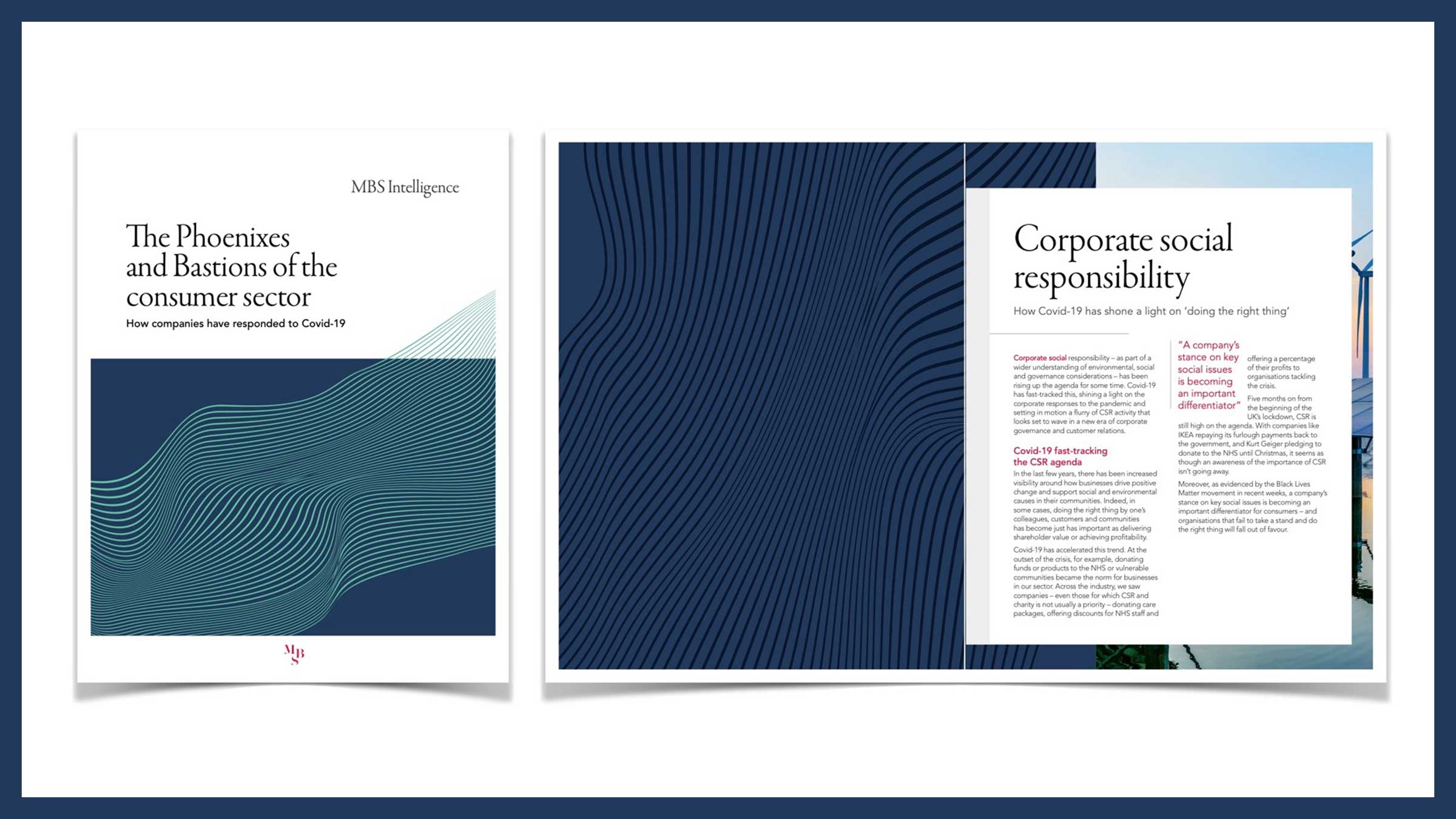Over the past few years, the world has seen some extraordinary developments that few could have predicted. 2020 has proven to be the pinnacle so far, with Covid-19 generating permanent change in the corporate, political and societal spheres. In the consumer-facing industries specifically, the pandemic has overhauled entire sectors, forcing business leaders to re-think their operations and accelerating existing trends at a phenomenal speed.
Now, as we approach the autumn and enter the next phases of Covid-19, we are looking back at the key themes from this extraordinary period. Our new report, The Phoenixes and Bastions of the consumer sector: how companies have responded to Covid-19, pulls together ten key themes, exploring the areas where the pandemic has had the most impact.
Based on conversations with our sector’s most influential leaders, this report is a collection of insights and analyses which reflect the view of businesses globally, covering FMCG, retail, travel, leisure, hospitality, digital, fashion and luxury.
Some of the changes brought about by Covid-19 are immediate and obvious, while others are subtle and slow-burning. By tabling the ten themes now, we hope to revisit them and assess which predictions have come to pass, and which were never fully realised. Who will be the bastions that successfully weather the crisis and who will be the phoenixes that rise from the ashes?
The ten themes are summarised below:
Digital acceleration
A few weeks ago, the CEO and CTO of Accenture posited that three years’ worth of digital transformation happened in the space of three months during Covid-19. In the period, we’ve seen profits soar at digital businesses, the boom of online grocery and the birth of countless partnerships between traditional businesses and digital startups. Looking ahead, Covid-19 may be perceived as a watershed moment, when a digital offering moved from being a ‘nice to have’ to an essential part of survival.

Investments, mergers and acquisitions
This is a unique time for the consumer-facing sector, with widespread disruption leading to the collapse of businesses and the emergence of new trends and technologies. Amidst this uncertainty, there are opportunities for investment, and for businesses to disrupt the market with mergers and acquisitions. Indeed, we have already seen this play out, with digital-first organisations raising funds during the crisis, and high-profile acquisitions taking place as funds take advantage of reduced prices.
Corporate social responsibility
Covid-19 has brought CSR to the fore. At the outset of the crisis, businesses rushed to support their colleagues, suppliers and communities with countless charitable initiatives which made headlines across the country. Since that time, we’ve seen organisations continually ‘stepping up’ and doing the right thing. Looking to the future, it will be interesting to see if this experience marks a new era of corporate governance and customer relations.
People strategies
Human capital has been at the heart of the pandemic from the beginning. Throughout the crisis, we have seen some extraordinary developments in mass furloughing, key worker recognition and boards which are now primed for disruption. In this section, we look at the long-term impact that this period will have on ongoing people strategies.
Partnerships
In the last few months, countless partnerships have sprung up between businesses in our sector. Covid-19 has revealed the interconnectedness of our industries, and also highlighted the advantages of forging partnerships to enter new markets, reach more customers and provide further competitive edge.
The supply chain
Covid-19 looks set to transform global supply chain operations. The crisis threw into sharp relief the downfalls of not knowing your supply line, and the disadvantages of hyper-optimised supply networks which leave no room for flexibility. From fashion to FMCG, the pandemic may mean the end of globalised supply chains in favour of local, and the beginning of supply chain transparency as a key competitive differentiator.

Corporate collaboration
At the outset of the crisis, the leading supermarkets jointly penned a letter to consumers urging against stockpiling. This move served as a symbol of unity – and set the tone for weeks to come in the consumer-facing sector. Since that time, we’ve seen competition swapped for collaboration as businesses work together to fight the virus and support the economy.
Changing consumer behaviour
History tells us that crises cause fundamental shifts in both societal attitudes and the ways in which businesses and economies operate. Covid-19 will be no different – and organisations must think holistically and carefully about their future to determine where they fit in the ‘new normal’.
Agility
Quick thinking pivots were on the cards throughout the pandemic, from LVMH re-focusing its manufacturing from fragrances to hand sanitiser to wholesalers shifting towards DTC models in order to carry on trading. Looking ahead, leaders will have to take the lesson of Covid-19 with them into the future unless they want to be outrun by more nimble competitors.
Deprioritised areas
Covid-19 strategies have rightly dominated the corporate agenda over the last few months. In this section, we examine alternative business priorities, such as diversity, sustainability and innovation, and look at how they have been impacted by Covid-19 .
You can find a link to full report here and we would love to hear your feedback. As we continue to assess the themes over time and interview business leaders, guidance from the executive community is extremely valuable. Have we missed anything? Are there particular examples that you think underpin any of these themes? Which companies do you think will be the phoenixes and bastions of the consumer sector?









